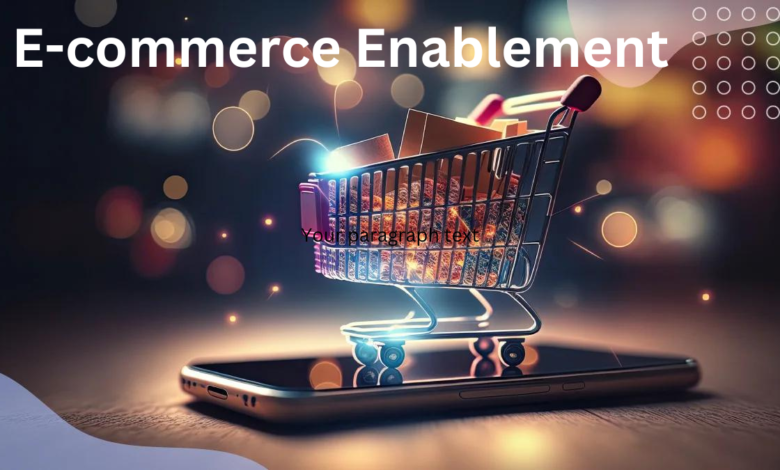Empowering Your Business with E-Commerce Enablement

In today’s digital age, e-commerce enablement has become essential for businesses looking to thrive in the competitive market landscape. With consumers increasingly turning to online shopping for convenience and accessibility, leveraging e-commerce platforms can unlock new opportunities for growth and expansion. In this article, we’ll explore the concept of and discuss how businesses can harness its power to drive sales, enhance customer experiences, and achieve long-term success.
Understanding E-Commerce Enablement
E-commerce enablement refers to the process of integrating electronic commerce capabilities into a business’s operations, allowing them to sell products or services online. This involves setting up an online storefront, implementing secure payment gateways, and optimizing the website for seamless browsing and purchasing experiences. E-commerce enablement enables businesses to reach a wider audience, increase sales channels, and adapt to changing consumer preferences in the digital age.
Key Components of E-Commerce Enablement
Designing and developing a user-friendly and visually appealing online storefront that showcases products or services effectively. Optimizing the website for mobile responsiveness to ensure a seamless shopping experience across all devices. Integrating secure payment gateways such as PayPal, Stripe, or Square to facilitate safe and convenient online transactions. Implementing SSL certificates and encryption technologies to protect customer data and build trust. Utilizing inventory management systems to track product availability, manage stock levels, and streamline order fulfillment processes. Implementing real-time inventory syncing to prevent overselling and optimize inventory turnover.
Customer Relationship Management (CRM)
Leveraging CRM software to collect and analyze customer data, personalize marketing efforts, and improve customer retention. Implementing automated email marketing campaigns to nurture leads, encourage repeat purchases, and enhance customer loyalty. Developing comprehensive digital marketing strategies encompassing search engine optimization (SEO), social media marketing, and pay-per-click (PPC) advertising.
Leveraging data analytics and performance tracking tools to measure the effectiveness of marketing campaigns and optimize ROI.
Benefits of E-Commerce Enablement
E-commerce enablement allows businesses to reach a global audience beyond geographical boundaries, unlocking new market opportunities and revenue streams. By establishing an online presence, businesses can complement their traditional brick-and-mortar stores with additional sales channels, diversifying revenue sources and maximizing sales potential. E-commerce platforms offer customers the convenience of shopping anytime, anywhere, with access to a wide range of products and services at their fingertips.
Personalized recommendations, seamless checkout processes, and responsive customer support contribute to positive shopping experiences and foster customer satisfaction and loyalty.
Improved Operational Efficiency
Streamlining order management, inventory tracking, and payment processing through e-commerce enablement can improve operational efficiency, reduce overhead costs, and drive profitability. Equips businesses with the flexibility to adapt to changing market trends and consumer behaviors, as well as the scalability to grow and expand their operations as demand increases.
Read More: Business



